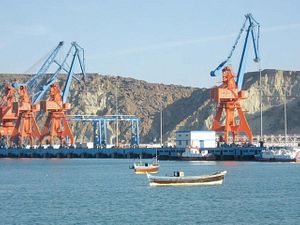The Indus River is known as the lifeblood of Pakistan’s economy. Great ancient civilizations were formed along the Indus River, including the Gandhara and Mohenjodaro. Pakistan’s economy will continue to rely on the River Indus but a new dimension has been added. Now the China-Pakistan Economic Corridor (CPEC) is bringing a sharp transformation. It is offering the tantalizing prospect of an Indus River miracle to match those on the Yellow River (China) and Han River (South Korea).
Pakistan can also learn much from Japan, Singapore, and Malaysia. The government has its sights on becoming the 25th largest economy in the world. The CPEC project has become a full spectrum project. Learning from the Asian miracle economies by sharing experiences is essential if a prosperous new Indus River civilization is to emerge.
First, the flagship project, the CPEC itself, will be the pilot project of China’s massive One Belt, One Road (OBOR) vision initiated by President Xi Jinping in 2013, which will build 21st century maritime and land routes across Central Asia, South Asia, Southeast Asia, Africa, and the Middle East. This is a milestone in global connectivity, building the physical infrastructure for sustainable economic development, encouraging trade and investment and contributing to a more peaceful world. The vision behind the OBOR is admirable.
A number of practical measures for the CPEC are already underway. During his visit to Pakistan Premier Li Keqiang in May 2013 disclosed the CPEC plan. A memorandum of understanding (MoU) was signed in July 2013 after Prime Minister Nawaz Sharif visited Beijing. Xi paid an historic visit to Pakistan in April this year where he announced $46 billion in investment for the numerous projects of the CPEC, signing as many as 51 MoU with priority given to energy projects – which received $30 billion – and transportation projects. A CPEC Unit was then created within the Prime Minister’s office and the Ministry of Planning, Development, and Reforms was given the daunting task of rapidly executing CPEC projects in collaboration with its Chinese counterpart, the National Development and Reform Commission.
The Frontier Works Organization (FWO) has built 850 km of road in Balochistan, part of the 3000 km CPEC, to connect Gwadar Port via the Western Route to Kashgar. Other routes will be the Central and Eastern Routes. In November, Pakistan’s government allocated more than 2000 acres of land on a 43-year lease to the Oversees Ports Holding Company Ltd (COPHCL) of China to build a state-of-art airport – which will be Pakistan’s largest – at Gwadar along with an industrial zone.
In another historic move, China has made the CPEC part of its 13th Five-Year Plan for Economic and Social Development for the period 2016-2020.
Unfortunately, widespread corruption in Pakistan makes it hard for ordinary Pakistanis to benefit from development. The country has a justified reputation as a “graveyard for projects.” Pakistani law enforcement is investigating cases involving massive corruption.
China has been trying to ensure that its $46 billion investment is not misappropriated. Beijing is committed to making the CPEC flag ship pilot project a symbol of transparency and good governance, as proclaimed by Liu Jianchao, Vice Minister of China’s National Bureau of Corruption Prevention. This will be an important component of any economic rebirth.
China is running its own anti-graft campaign, which has been comprehensive, to say the least: More than 100,000 people have been indicted for corruption, including many senior officials. The Chinese government has also successfully brought back to China corrupt officials who had fled abroad.
Liu insists the that any complaint of misappropriation of funds relating to the CPEC will be investigated. The Chinese National Bureau of Corruption Prevention is making arrangements with its Pakistani counterpart the National Accountability Bureau (NAB). The two countries are set to sign an anti-corruption accord that will have zero tolerance for corruption.
That sends a strong message to all government departments and officials and their contractors who might be involved in the CPEC projects.
If we can assume rapid action on the CPEC allied with transparency and good governance, then the miracle on the Indus River might just come about.
Dr Ahmad Rashid Malik is a Senior Research Fellow at the Institute of Strategic Studies Islamabad. He writes on East Asian affairs.

































